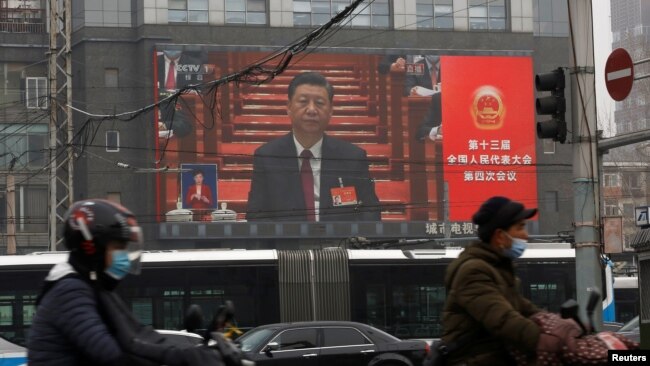もはや貧困ではない?中国
中国は本当に極端な貧困に打ち勝ったのか?
Has China Really Defeated Extreme Poverty?
March 06, 2021
中国は木曜日、立法諮問機関のトップである中国人民政治協商会議の年次会議を開会しました。中国人民政治協商会議のリーダーは、習近平国家主席のCOVID-19への対応を賞賛し、彼の言葉を借りれば、中国の貧困との闘いにおける”万能の勝利”であると報告しました。
先週、習近平国家主席は貧困削減の進展を祝う式典で同様のコメントを行いました。彼は、中国では極端な貧困は終わったと宣言しました。
"農村の貧困層である9,899万人全員が貧困から脱却した "と彼は言っています。
習氏は2012年、中国が極端な貧困を終わらせるために世界銀行が定めた2030年の目標を超えた計画を開始しました。
公式メディアは先週、この式典の様子を数百万人に向けて放送しました。習近平は、政府が過去8年間に貧困と戦うために約2460億ドルを費やしてきたことを市民に伝えました。
習近平氏は、これらの人々はもはや食料や衣服を買うことができるかどうかを心配する必要はないと述べました。また、政府は医療、住宅、教育を保証すると述べました。
中国共産党(中国共産党)の機関紙である人民日報は、貧困の終焉を "歴史的 "と呼んでいます。
ちょうどこの過去の日曜日、中国は "No.1政策文書 "と呼ぶものを発表しました。それは貧困との戦いを続けることを約束し、その一方で、中国が "農村の活性化 "と呼ぶものに計画を変更しました。中国の国有紙 グローバル・タイムズ に引用された専門家によると、この新しい政策は、農村地域のコミュニティが政府の援助をより必要としないようにするために働くという。これは、大規模なインフラプロジェクトで多くの新規雇用を創出することで実現するだろう、と専門家は付け加えています。
施策の変更
しかし、貧困を定義する際、中国は世界の最貧国を設定するために世界銀行の尺度を使い続けています。しかし、世界銀行は、中国を高位中所得経済圏とみなしています。また、中国は農村部の貧困の中で生活している人を、1日1.69ドルで生活している人と定義しているとロイターは報じています。世界銀行は毎日 1.90 ドルで生活している人と定義しています。
ブルッキングス研究所の経済学者インダミット・ギル氏は、中国経済を見て、世界で最も貧しい国の公式の貧困ラインを使って進歩を測定することは、"まさに未達成の定義 "であると書いています。
習近平と公式メディアは、文化大革命後に中国が外国からの投資に開放されたことから始まった40年以上に及ぶ市場型の経済改革について、ほとんど沈黙したままでした。
2020年が閉幕するにあたり、世界銀行のマーティン・レイザー氏はニューヨーク・タイムズ紙に、中国が農村部の貧困を解消したと信じる一方で、この状況が続くかどうか、またその対策が費用対効果があるかどうかについて疑問を呈しています。
政府は農村部の労働者のための雇用を創出し、農家に動物を与え、貧しい農村部に多額の資金を投入したと、タイムズ紙は報じています。
貧困に関する利益の維持
習近平の中国の貧困の終焉宣言は、昨年5月の中国の李克強首相の発言と矛盾しています。
「月収が140ドルで、中国の都市で部屋を借りられるほどではない6億人以上の人々がいる」と彼は毎年の記者会見で述べています。
Xia Ming 氏はニューヨーク市立大学の政治学教授です。彼は、与党の中国共産党が、中国の貧困をなくす努力の成功についての習氏の主張を支持するだろうと予想していると述べています。習氏によると、彼らは裏付けとなる証拠の作成に取り組むかもしれないといいます。
Wu Qiang 氏は、清華大学政治学部の元教員です。VOAによると、Xi氏の発言は、8年間の権力を握ってきた習氏が強調すべきことがほとんどないことを示しているといいます。彼は、貧困の終わりを宣言することは、所得格差の上昇に直面している国を落ち着かせるための努力であると付け加えています。
習氏の公の発言は、貧困を終わらせようとすることで共産党を守ろうとしていることを他の党指導者に示すためのものだと述べています。
中国は、金曜日に北京で年に一度の儀式立法府の会議を開いています。数千人の代表者が全国人民代表大会に出席します。続いているCOVID-19危機の間、昨年の国の強力な経済パフォーマンスが再び称賛されることが期待されています。そして、政府は自国経済の長期目標について議論することが期待されています。数千人の代議員が全国人民代表大会に出席しますが、そのほとんどはビデオリンクによるものでです。
Has China Really Defeated Extreme Poverty?
A giant screen shows Chinese President Xi Jinping attending the opening session of the National People's Congress (NPC) at the Great Hall of the People, in Beijing, China March 5, 2021. (REUTERS/Tingshu Wang)
China opened the yearly meeting of its top legislative advisory body, the Chinese People's Political Consultative Conference, on Thursday. The CPPCC leader praised President Xi Jinping’s government’s COVID-19 response and reported, in his words, “an all-round victory” in China’s fight against poverty.
Last week, President Xi made similar comments in a ceremony celebrating the progress on poverty reduction. He declared extreme poverty had been ended in China.
"All 98.99 million people who are the poor rural population have been taken out of poverty,” he said.
In 2012, Xi began a plan that has helped China go beyond the World Banks’s 2030 target for ending extreme poverty.
Official media broadcast the ceremony last week to millions of people. Xi told citizens that the government had spent about $246 billion, to fight poverty over the last eight years.
Xi said these people no longer need to worry about being able to buy food and clothes. He also said the government will guarantee healthcare, housing and education.
The People’s Daily, official newspaper of the Chinese Communist Party (CCP), called the ending of poverty “historic.”
Just this past Sunday, China released what it calls the “No. 1 policy document.” It promised to keep fighting poverty, while changing the plan to what China calls “rural revitalization.” Experts quoted by the state-owned Chinese newspaper, the Global Times, said the new policy will work to help communities in rural areas need less government assistance. This would be done by creating many new jobs in large infrastructure projects, the experts added.
Changing measures
However, in defining poverty, China continues to use the World Bank’s measure for establishing the world’s poorest countries. But the World Bank considers China among upper-middle-earning economies. Also, China defines a person who lives in rural poverty as someone who lives on $1.69 each day, reports Reuters. The World Bank defines it as someone who lives on $1.90 each day.
In looking at the Chinese economy, Brookings Institution economist Indermit Gill wrote that measuring progress using the official poverty lines of the world’s poorest countries is the “very definition of underachievement.”
Xi and the official media remained largely silent about more than forty years of market-style economic reforms that began with opening China to foreign investment after the Cultural Revolution.
As 2020 closed, Martin Raiser of the World Bank told the New York Times that while he believes China has ended poverty in rural areas, he questioned if the situation would continue and if it the measures in place are cost effective.
The government created jobs for rural workers, gave animals to farmers, and put lots of money into poor rural areas, reported the Times.
Keeping gains made on poverty
Xi's declaration of the end of poverty in China conflicted with a statement by Chinese Premier Li Keqiang last May.
“There are over 600 million people whose monthly income is barely $140, not enough to rent a room in Chinese cities,” he said at his yearly press conference.
Xia Ming is a professor of political science at the City University of New York. He said he expects the ruling CCP will support Xi's claims about the success of China's efforts to end poverty. They might, Xia said, even work to create supporting evidence.
Wu Qiang is a former teacher in the political department at Tsinghua University. He told VOA that Xi's statements show he has very little to highlight after his eight years in power. He added that declaring the end of poverty is an effort to calm the country in the face of rising earnings inequality.
He said Xi’s public statements are to show other Party leaders that by trying to end poverty he is trying to protect the Communist Party.
China is opening the yearly meeting of its ceremonial legislature on Friday in Beijing. Thousands of delegates will attend the National People’s Congress. The country’s strong economic performance last year during the continuing COVID-19 crisis is expected to be praised again. And the government is expected to discuss its long-term goals for its economy. Thousands of delegates will attend the National People’s Congress, though mostly by video link.
Words in This Story
rural - adj. of or relating to the country and the people who live there instead of the city
revitalize - v. to make (someone or something) active, healthy, or energetic again
quote – v. to repeat (something written or said by another person) exactly
infrastructure - n. the basic equipment and structures (such as roads and bridges) that are needed for a country, region, or organization to function properly
underachievement - n. someone (such as a student or athlete) who does not perform as well or work as hard as he or she can
